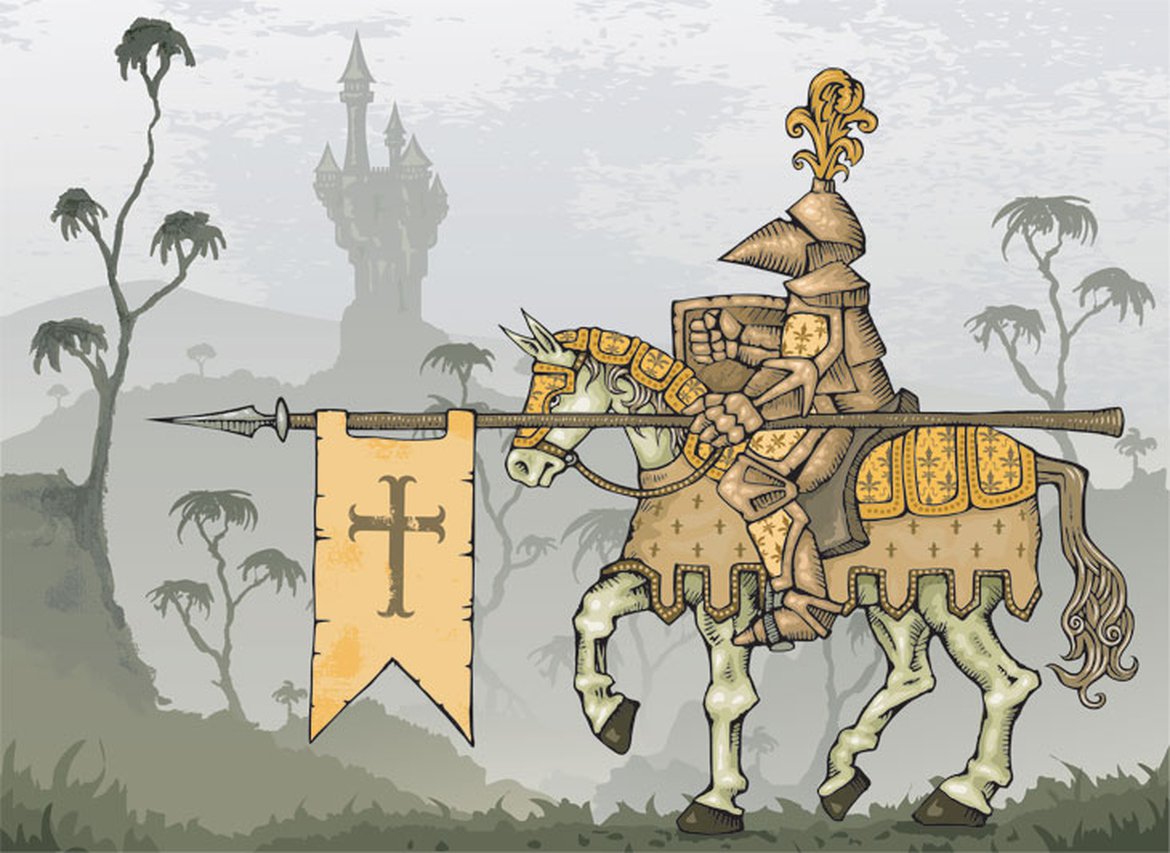Me, Myself and I
May 24, 2019

I grew up listening to an extremely eclectic selection of music.
As the youngest child in a family of five that spanned almost 20 years, I was exposed to everything from Otis Redding and Petula Clark, to Herman’s Hermits, Cat Stevens, The Clancy Brothers and Broadway musicals.
One of my favourite Broadway shows was Camelot, Lerner and Loewe’s take on the enduring King Arthur legend. Apart from Camelot’s obvious attractions – Julie Andrews! Richard Burton! Medieval costumes! Jousting contests! – the musical should be required listening for another, arguably more important reason: It can teach us the proper use of “me, myself and I.”
I’m referring, of course, to Sir Lancelot’s signature song, “C’est moi.”
For those less familiar with the story, Lancelot is a young French knight who hears of Camelot and decides to present himself to the Court of King Arthur. But Lancelot knows that to be a Knight of the Round Table is no easy feat:
A knight of the table round should be invincible
Succeed where a less fantastic man would fail
Climb a wall, no one else can climb
Cleave a dragon in record time
Swim a moat in a coat of heavy iron mail
Who could this possibly be, Lancelot humbly asks? C’est moi, he asserts – It’s me.
Notice that Lancelot, who is nothing if not proper (except when he eventually runs off with Guinevere, the King’s wife) does not say: C’est moi-même – It’s myself.
Somewhere in our far-off youth, it seems, we were taught that it’s incorrect and seriously impolite to draw attention to ourselves by using “me” in a sentence. So instead, we insert “myself.” As in:
- If you have any questions, please contact myself.
- Mary and myself will be collecting your feedback.
Now I know there will be some strict grammarians out there who will protest that even Lancelot had it wrong, and that instead of It’s me, our French knight should have said It’s I. I concede, It’s I is proper, but It’s me is also perfectly acceptable – and sounds a lot less stuffy. Certainly, both are better than It’s myself.
Why? The simple answer is that myself is what we call a reflexive pronoun. Other reflexive pronouns are: himself, herself, yourself, itself, ourselves and themselves.
As Grammar Girl Mignon Fogarty explains, “A reflexive pronoun can only be the object of a sentence; it can never be the subject. …The reflexive pronoun is the right choice when the subject is mentioned again in the sentence.”
For example:
- I [subject] answered the questions myself [reflexive pronoun].
- She [subject] collected all the feedback herself [reflexive pronoun].
- He [subject] prepared the meal himself [reflexive pronoun].
- They [subject] saw themselves [reflexive pronoun] in the mirror.
As for I and me, remember that pronouns I, she, he, they, you, we and it are subject pronouns. They are the actors in a sentence and, in a simple sentence, they come first.
The pronouns you, me, her, him, it, us and them are object pronouns. That is, they are being acted on, and they come after the verb.
For example, it is correct to write:
- She gave the questionnaires to me.
This is because she is a subject pronoun, while me is an object pronoun.
You would not write – or say:
- Her gave the questionnaires to myself.
This is because her is an object pronoun, not a subject pronoun. And myself is a reflexive pronoun, only to be used if you elsewhere identify I as the subject.
Here’s another example:
- I gave the feedback forms to her and him.
The sentence needs a subject pronoun, therefore I is correct. Me is incorrect (because me is an object pronoun). Myself is also incorrect (because myself is a reflexive pronoun).
Her and him are object pronouns so they are correctly placed as the recipients of the feedback forms. You would not use herself and himself because they are reflexive pronouns. Trying out the alternatives should help you to see what’s what:
- Me gave the feedback forms to herself and himself. (I don’t think so.)
- Myself gave the feedback forms to herself and himself. (God no!)
Make sense? I hope so. If you still need clarification, you could do worse than travelling back to 1960 for a listen to Robert Goulet, the original Broadway Lancelot, belting out C’est moi.
Remember this:
Myself is to be used only when you have identified yourself as the subject (i.e. I) elsewhere in the sentence.
Words